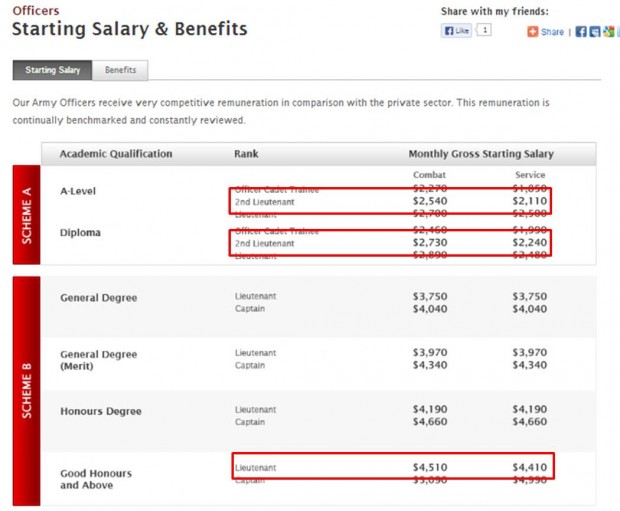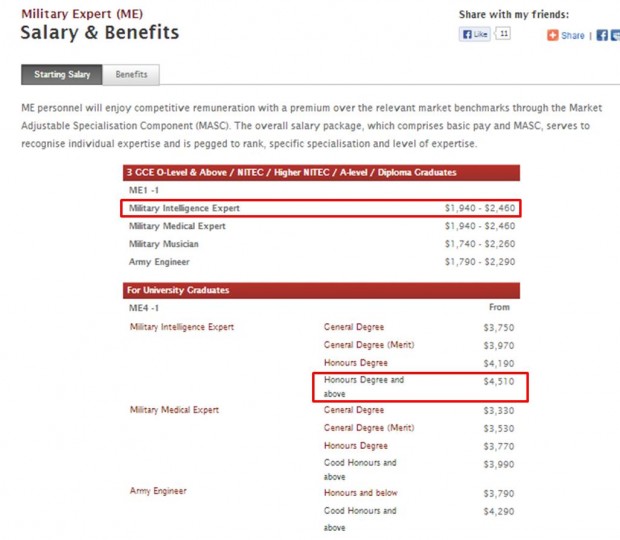Life is never fair and whoever tells you otherwise is full of bullshit. People who are born with a silver spoon in their mouth enjoy unfair advantages over their peers. But fortunately in Singapore, all is not lost for the poor kids.
I personally came from low-income family and understand how it feels to be at the bottom rungs of society. But my mom who brought me up single-handedly had successfully drilled the notion that I will be able to break out of this invisible caste by studying really hard to get a degree and secure a high paying office job after graduation.
Supported by the much-hyped meritocracy system in Singapore, I became a staunch believer of social mobility in Singapore and worked hard to elevate my social status through attaining paper qualifications from PSLE to O’ Levels, A’ Levels and eventually graduating with a 2nd Upper Honours Degree Qualifications from our local university.
I am not alone in my aspirations; social mobility is central to the Singapore story and its background context of “Asian values”. It is the belief that, with hard work and diligence, anyone can raise themselves up socially and economically, regardless of the humbleness of their origins. No doubt inequality in terms of social status can give the more privileged greater advantages, as long as the principle of meritocracy reigns, everyone should be able to work their way up. This is the theory and the principle of meritocracy, which Singaporeans have long cherished and defended.
Despite Mr Khaw Boon Wan’s comment that University Degree Are Not Vital For Success, paper qualifications is still king when it comes to securing a good job, bringing home a good pay and getting a clear path for career advancement in Singapore. Let’s not kid ourselves; static meritocracy is very much alive and kicking in our little red dot. Our initial state of performance, typically in examinations, becomes the determinative factor when it comes to our success or failure in life.
Static meritocracy is most manifest in our Civil Service with its scholarship system. In fact, even the non-scholar paths are laced with evidence of static meritocracy.
Let’s first start with the scenario that I am a Good Honours & Above Degree Holder. Imagine that I am looking for a job in the Singapore Armed Forces and checking out the Singapore Armed Forces Army Officer Starting Salary & Benefits.
As a combat lieutenant, I get to bring home $4,510 monthly. If I were a Diploma or an A’ Level Holder, I would be drawing $2,540 – $2,730 for basically performing the exact same role in the armed forces. That’s a whopping difference of $1,970! Not to mention that there was a complete absence of a scheme for O’ Levels, NITEC and Higher NITEC. I will have to assume that the position of an army officer is not made available for these groups of graduates.
The Singapore Armed Forces ARMY Military Expert Starting Salary & Benefits is even more startling. Doing exactly the same role of Military Intelligence Expert, the pay difference between a Non Degree Holder ($1,940) and a Good Honours Degree Holder ($4,510) can go as high as $2,570! Furthermore, I have heard that an unspoken ceiling may also be present when it comes to career advancement for non-degree holders.
We can see clearly from here that a good paper qualification does goes a long way when it comes to securing a higher starting pay. Although it does not seem fair that higher paper qualified workers are drawing higher salary for doing exactly the same job, they should be compensated for the amount of time and effort spent with acquiring their knowledge and qualifications. If the government were to distribute salary based on job scope only, the value of Singapore’s education qualifications will immediately become worthless.
So does that mean that there is nothing fundamentally wrong with static meritocracy? After all these group of Singaporeans who have achieved their paper qualifications have worked hard to attain the social status and perks they enjoy today.
Does this mean that Singaporeans with higher education can afford to rest on their laurels and similarly late bloomers should just resign to their fate?
What type of meritocracy should we practice?
Our forefathers envisioned an environment where all are judged on the demonstration of abilities — not on the presumption of abilities based on quality of one’s background, wealth or family connections. In this dynamic type of meritocracy, the successful can succeed only if they dare to fail, and fail if they only try to succeed.
There are some forms of dynamic meritocracy in Singapore but they are pretty much limited within the pre-set static meritocracy boundaries. Diploma holders can prove themselves within their equivalent but are not able to compete on the same arena as degree holders despite starting out on the exact same role. In many cases there are two different career paths for diploma and degree holders without a bridge in between, and hence limiting opportunity for growth and development for diploma holders.
I remembered when I was in serving my national service; there was a really outstanding officer who has been a Captain for a while. My platoon mates shared that being a diploma holder; this officer may have to be contented with his current rank and will probably just retire with a Major rank. I am not sure how true that statement is but it will be waste of talent if we limit the advancement of capable people just because of their lack of paper qualifications.
A degree holder usually gets a higher pay and starting position than a non-degree holder, but why do some organizations still emphasize that having a degree is mandatory to move up the career ladder?
Specialist fields like biomedical sciences, doctors, engineers and architects require employees to obtain higher qualifications to rise up the ranks due to the nature of the job requiring specialized theoretical or practical knowledge.
But for general fields where on the job experience matters more than what any textbook can teach, is it absolutely critical for an employee to have a degree if he can prove his worth otherwise?
If we took this questionable practice (of qualifications being the determining factor of career mobility in general fields) a step further, one can even argue that the employee needs a Masters or PhD to rise to senior management and C-suite.
This is where the state can lead the way to offer extra-ordinary growth and career development options for less qualified individuals who show potential with their outstanding performance at work, the public and private sectors should relook their HR practices and find out if they are losing these talents simply because there is a stunted career progression (and hence less motivation to stay in the organization) for them due to lack of degree qualifications. For example, if a diploma holder proves to be an outstanding army officer with strong leadership qualities, he or she can be offered a degree scholarship for advancement to the next level.
I personally feel that Singaporeans are still able to enjoy social mobility if they are willing to work hard for it, and fight for the right to have career mobility based on their capabilities. If their organization does not currently have an option to recognize their capabilities, there are other channels for recourse, for example, going through the union to negotiate an extended career path (see video below between 6.30 – 7.30 minute), taking a part-time degree, finding another organization that values their employees or even champion for the right for every staff to rise as high as his capability allows.
Singaporeans themselves should take an active role when it comes to qualification advancement instead of waiting passively for such sponsorships. There are lots of degree programs available from the private education providers to be taken on part time basis. We need to snap away from heavy intertwined chains of false belief — namely, that our lives cannot be changed, lazy expectation for easy living, and wishful thinking that someone else will solve our problems for us. These chains must be cut by each of us for ourselves before we can truly set sail.
Besides taking a part-time education, Singaporeans can also actively seek organization that values their employees or even champion for the right for every staff to rise as high as his capability allows.
I have friends who are currently taking up part time Degree and Masters Programs after work to enhance their work skills to take on greater responsibilities at work, enjoy promising career advancement opportunities and make themselves more desirable in the job market. They have decided to forgo current enjoyment and invest their time and money for higher education for a brighter future.
Both organizations and Singaporeans who do not take the initiative to adapt have no one to blame but themselves. Before blaming poor fiscal performance on brain drain and fickle employee mindsets, employers should turn the spotlight inwards and question themselves whether they have created a conducive working environment that maximizes each employee’s talent. Before complaining about lack of jobs and strong competition from foreign talent, Singaporeans should ask themselves if they earned the right to that job position.
We are really lucky to be born in Singapore where there is minimal social caste structure present in our society. Singaporeans who are born not as well off have the fighting chance to enjoy social mobility if they are willing to work hard for it, and if employers give them a chance to prove themselves.
Although social mobility is a right that every Singaporean should have, it will take cohesive actions from the government, employer and even employees to make this right a reality.









